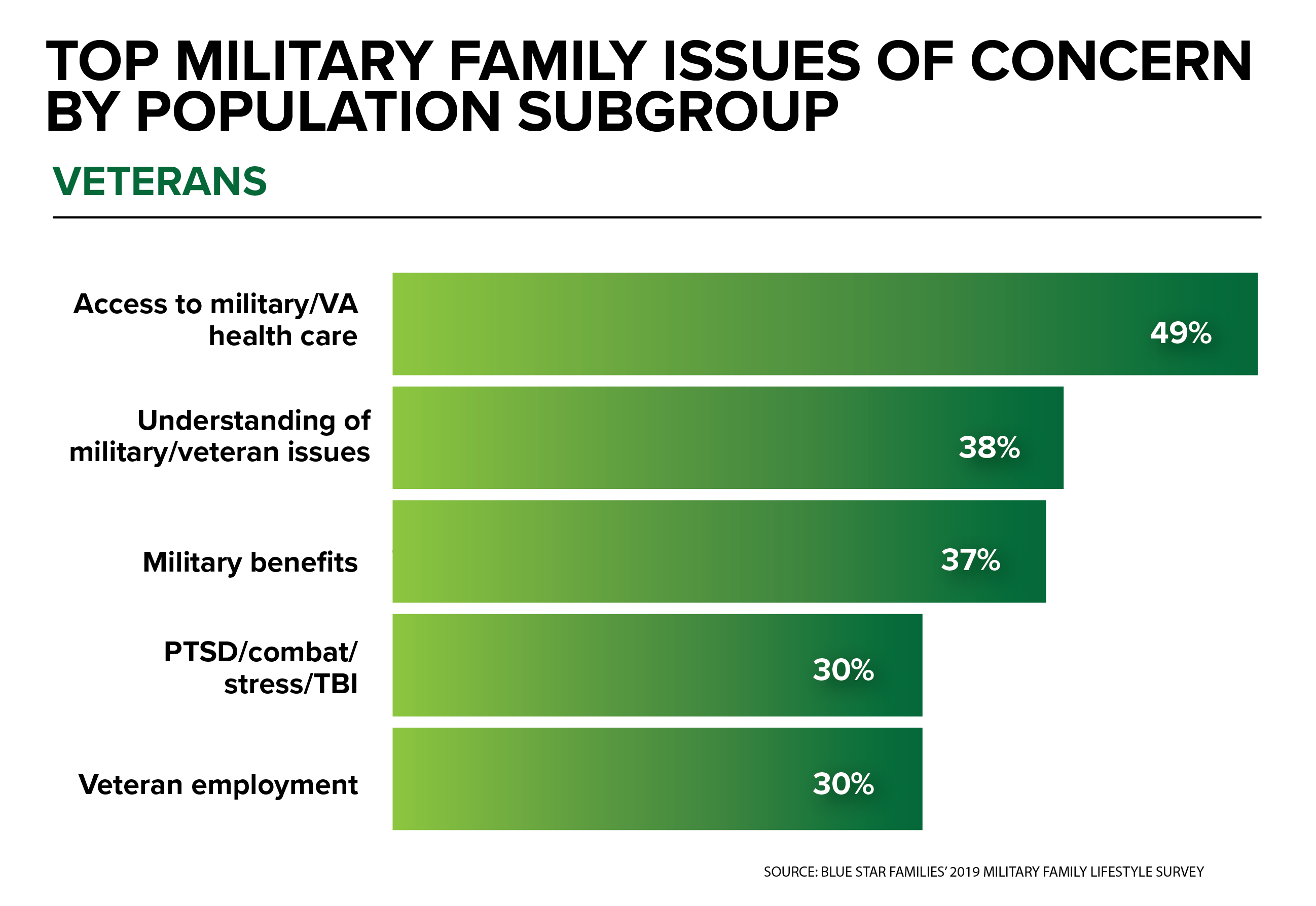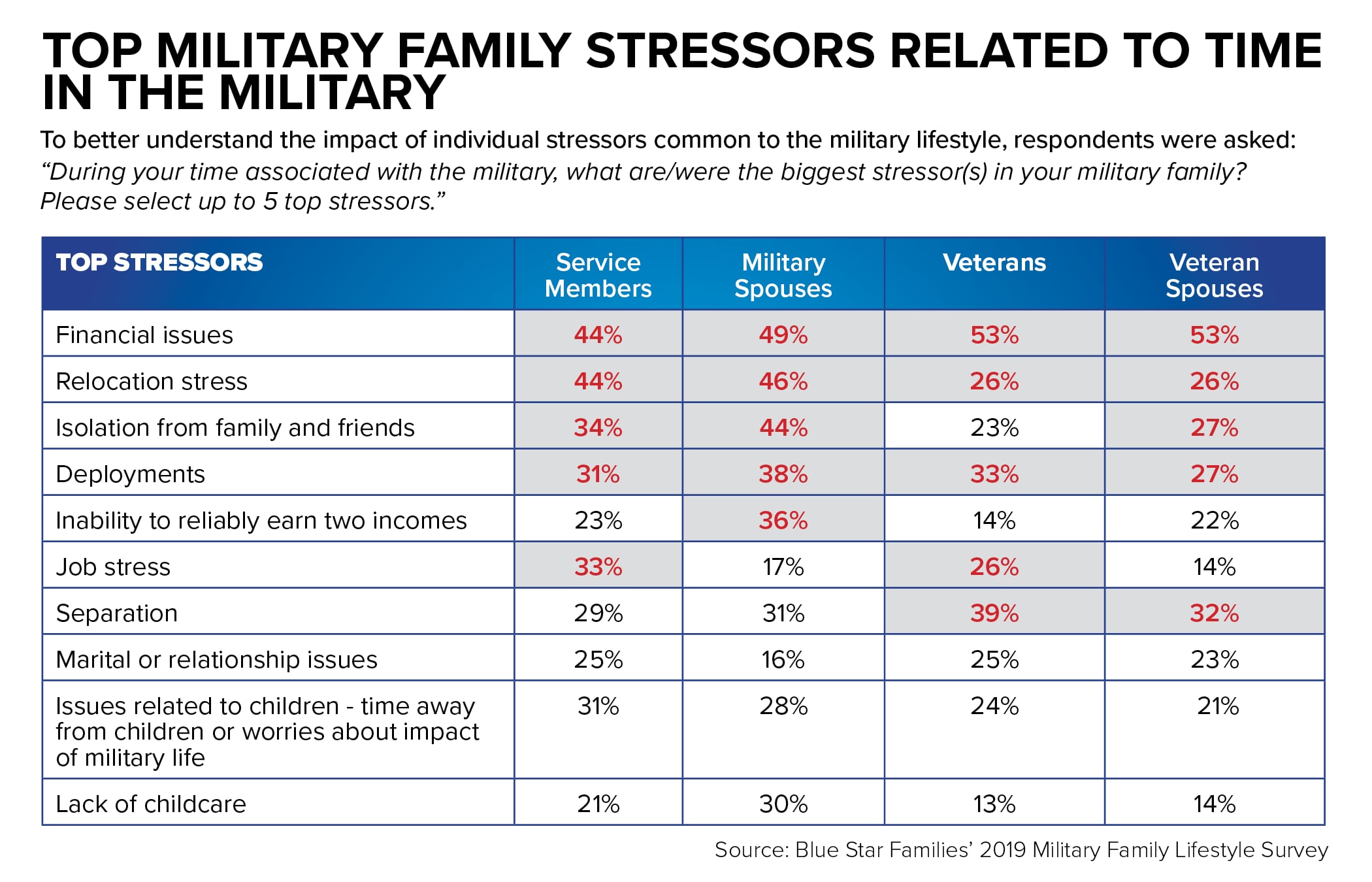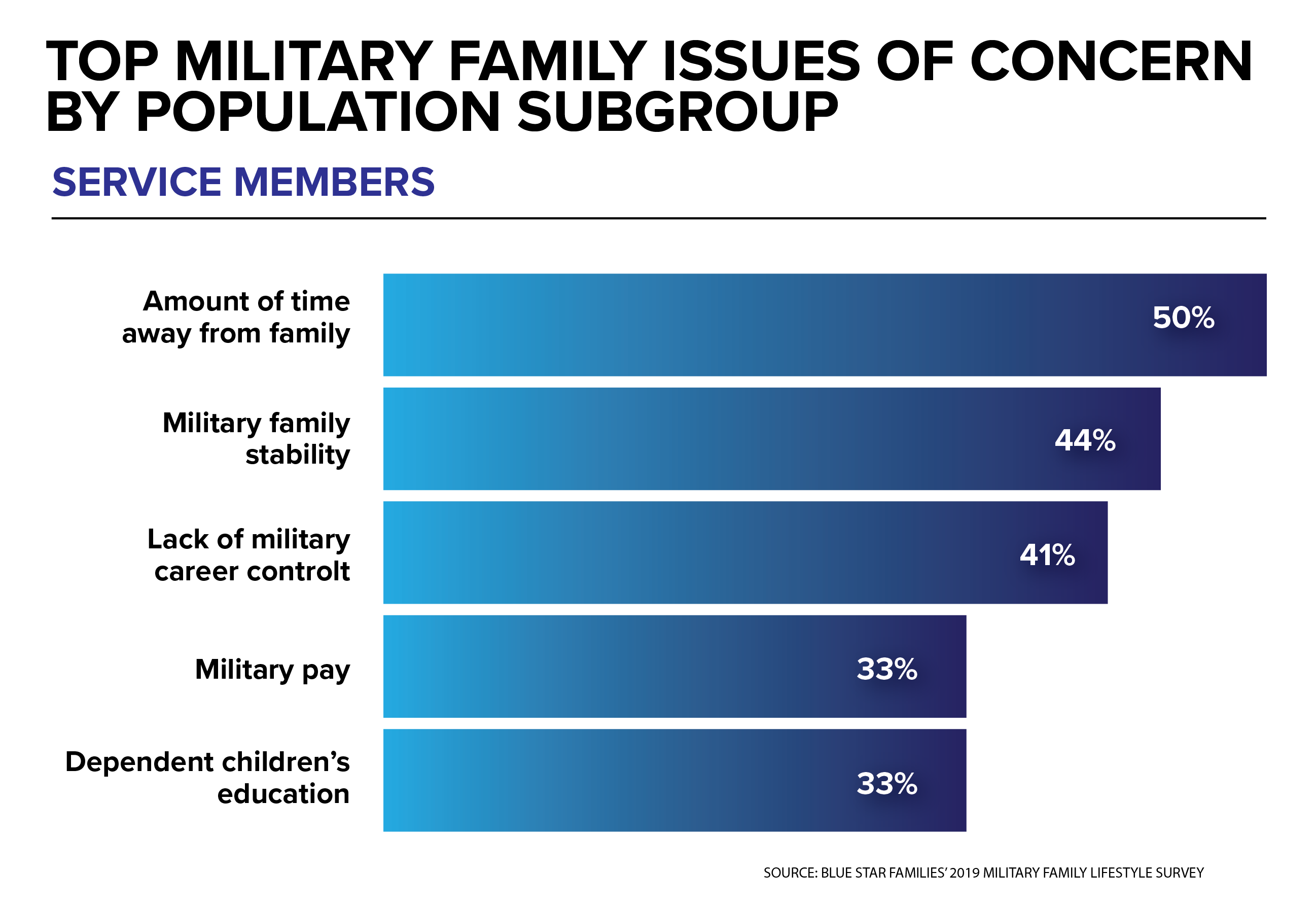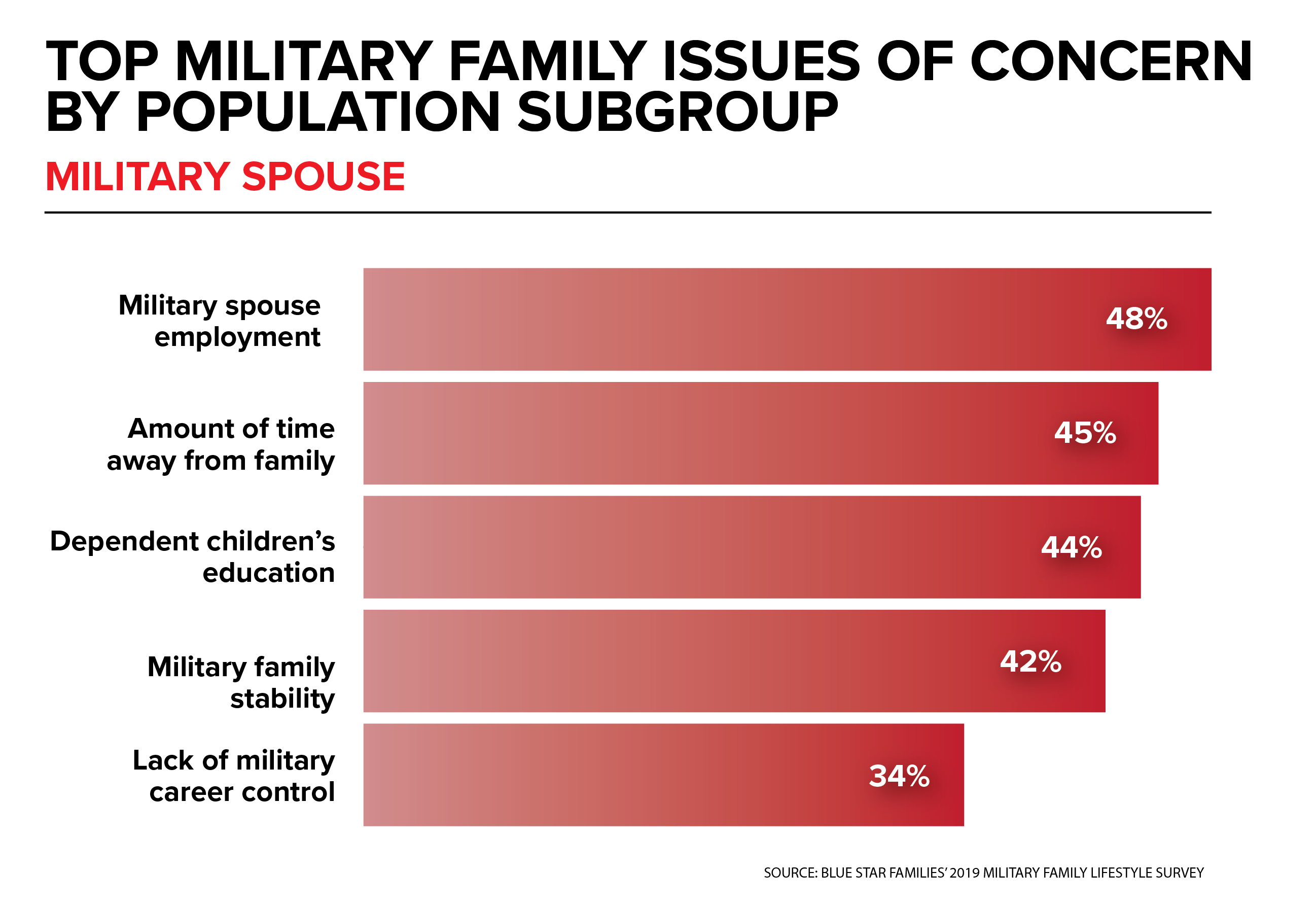Spouse employment, children’s education, child care, family stability and time away from family are persistent issues for military families, and a new survey digs into some of the consequences of this military lifestyle.
More than 11,000 family members, service members and veterans responded to the 2019 annual Blue Star Families’ Military Family Lifestyle Survey, which was conducted online from May 6 to June 21, 2019, in collaboration with Syracuse University’s Institute for Veterans and Military Families. Of those who participated, 52 percent were active duty spouses and 9 percent were active duty members. This is the 11th year the survey has been conducted.

Of those who responded, 39 percent said they had experienced six or more months of family separation within the last 18 months.
The most important trend the survey shows is the continued importance of family stability and quality of life, said Jessica Strong, senior research manager for Blue Star Families. The top issues related to this are time away from family, spouse employment and underemployment, child care availability and affordability, the stress of relocation.
“All these things are wrapped up in the military family’s need for stability,” Strong said.

Part of that is financial stability. The top stressors this year for active duty and spouses were financial issues and relocation. Of those surveyed, 63 percent said they experience stress due to their current financial situation; with the top contributors to that being spouse unemployment or underemployment; out-of-pocket housing and relocation costs, excessive credit card debt and out-of-pocket child care costs.
These issues have been concerns for years, and aren’t going to change overnight, she said. This year, the survey took a deeper dive into some of these perennial issues, in search of solutions. For example, findings indicate the biggest barrier for spouses in the employment is their service member’s day-to-day job demands, making it difficult for them to balance work and home. They’re not able to rely on that service member to help with the demands of home life.
In addition, three-fourths of employed military spouses who responded said they had experienced some degree of underemployment. And researchers found that this issue carries over into spouses of veterans.

Researchers recommended that that military leadership at all levels continue to build trust, increase career control and refine processes to improve outcomes for all military family members. “Existing personnel management and reporting policies do not fully account for the effects of service member day-to-day job demands, fear of reporting mental health issues, and relocation orders,” according to the report.
Secretary of Defense Mark Esper has made taking care of service members and families a key priority, and has taken steps to address issues of child care and spouse employment.
Many of the issues are tied directly to relocation, which was identified as a top five stressor by military families. This survey drilled down to find that families who have short-notice orders to move, of two months or less, had a significantly lower sense of belonging in their new community than those who received orders three months or more ahead of time. It’s been well known that these short lead times can affect the physical aspect of moving household goods as it’s more difficult to get a move scheduled, but this finding indicates the effects go well beyond those physical aspects.
Drilling into some of the effects of frequent relocation, the survey found that 22 percent of families had voluntarily chosen to live apart from the service member within the past five years. Of those, 32 percent were geo-baching because of their child’s education, and 40 percent because of the spouse’s career.

Relocations cause additional problems for families with special needs members, with 40 percent saying they’re not able to receive a referral and be seen by a specialist in a reasonable amount of time after relocating to a new duty station. In addition, 36 percent reported they don’t feel their community has the resources they need.
Military families are also choosing to homeschool their children to offset the effects of relocation, according to the survey. Children’s education continues to be a top five issue of concern. Among military families with school-aged children, 11 percent said they’re currently homeschooling their children; another 13 percent said they have homeschooled in the past but aren’t currently doing so. When asked why they currently homeschool their children, the top three reasons were flexibility to spend time together (49 percent); dissatisfaction with available public school options (48 percent); and the ability to stabilize the child’s academic experience (47 percent).
Among other findings:
*More than half of the service members with children who responded said the unavailability of child care had a negative impact on their ability to do their job, and to pursue education. Cost is a primary factor. In one example provided in survey comments, an Air Force member temporarily deferred training until the child was more than a year old, because of the inability to find affordable child care at the temporary duty training location.
* Concerns about the potential impact on a service member’s career is the most common reason for not seeking help among active duty, Guard and Reserve families who experienced suicidal thoughts/attempts. Families are dealing with these issues in This survey looked at military family stability, and the capacity of civilian communities to support these families.
Karen has covered military families, quality of life and consumer issues for Military Times for more than 30 years, and is co-author of a chapter on media coverage of military families in the book "A Battle Plan for Supporting Military Families." She previously worked for newspapers in Guam, Norfolk, Jacksonville, Fla., and Athens, Ga.





